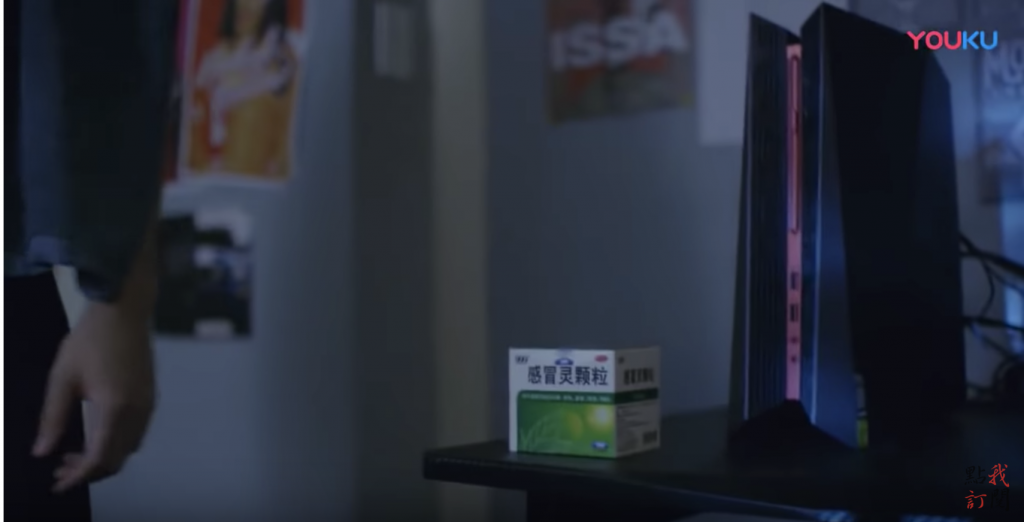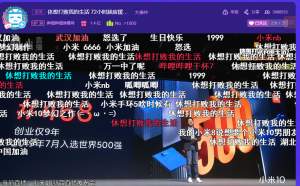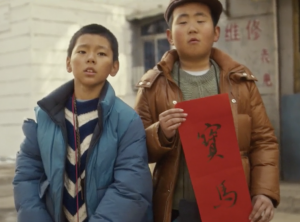
Awkwardly inserted product placements hurt the reputation of “Over the Sea I Come to You”
Last week, we looked at the positive feedback garnered by the brand integration activities of online education company Xueersi in the hit family drama “Growing Pain” (少年派).
This week we turn to the less rosy responses to brand marketing on another recent hit series, “Over the Sea I Come to You” (带着爸爸去留学, or literally “Taking Dad to Study Abroad”).
The Premise: The series follows the lives of several parents who accompany their teenage children to attend college in the U.S., a highly aspirational practice for many Chinese that has become more common over the last decade. The titular “dad” refers to Huang Chengdong (played by popular TV and film actor Sun Honglei), who travels to California with his son after his wife’s visa application is rejected. The affluent families portrayed in the show and the overseas connection made it an attractive candidate for brands seeking to insert themselves in the storyline.
One point that speaks to the risks of brand integration efforts in China’s current political climate: The series was originally scheduled to premiere on May 19, 2019 on Zhejiang Satellite TV and Dragon TV, and online through iQiyi, Youku, and Tencent Video. However, the broadcast was canceled at the last minute without explanation, leading to speculation that the California-set series would become a casualty of the U.S.-China trade war. It was unknown at the time whether “Over the Sea I Come to You” would be permitted to broadcast at all, but its run eventually began on June 13, with 46 episodes aired through July 9.
Implementation:
More than two dozen brands are listed in the closing credits of “Over the Sea I Come to You,” including Audi, Coca-Cola, GE Appliances, and P&G. But some placements in the series have been called out for their abrupt appearance. Critics have also expressed concerns over the impact of awkward integrations, and suspicions that certain plot points were written only to provide opportunities for brand placements.
A few examples that have been subject to particular ridicule: in the first episode, the families are involved in an accident while on a shuttle bus from the airport in Los Angeles. A young female passenger traveling alone is ejected through the front window and lands on the road, bloody and lifeless amidst broken glass. As the passenger is loaded into an ambulance, the camera cuts to a wealthy father character on the phone with UHomes (a home rental service aimed at Chinese students living overseas). The man says he is a VIP customer who was involved in an accident, and he and his child urgently need a ride. Moments later, a car plastered with UHomes branding arrives to pick them up.
In a later episode, a mother who has spent eight years in the U.S. with her son to support his studies is shown dumping a pot of water on his head during an argument. Character Huang Chengdong enters to calm everybody down, and soon after tells the son that he should take some cold medicine to prevent falling ill. Naturally, this provides an opportunity for a prominent plug of cold remedy brand 999.

Results: Scenes such as the above added to the show’s reputation for implausible scenarios, even as it apparently became one of China’s most-watched shows. Its review score on entertainment rating site Douban sits at a mediocre 3.5 (out of 10), with 57 percent of reviewers leaving one star.
Series director Yao Xiaofeng responded to some of the criticisms regarding brand placements in an interview with Chengdu-based Red Star News. Yao said he believes the current standards for brand integration in television series are fairly low and he was trying to manage the product placements so that they would “leave no trace.” However, Yao also acknowledged that while he dislikes the practice of pushing products, sometimes he simply had no choice in the matter.






